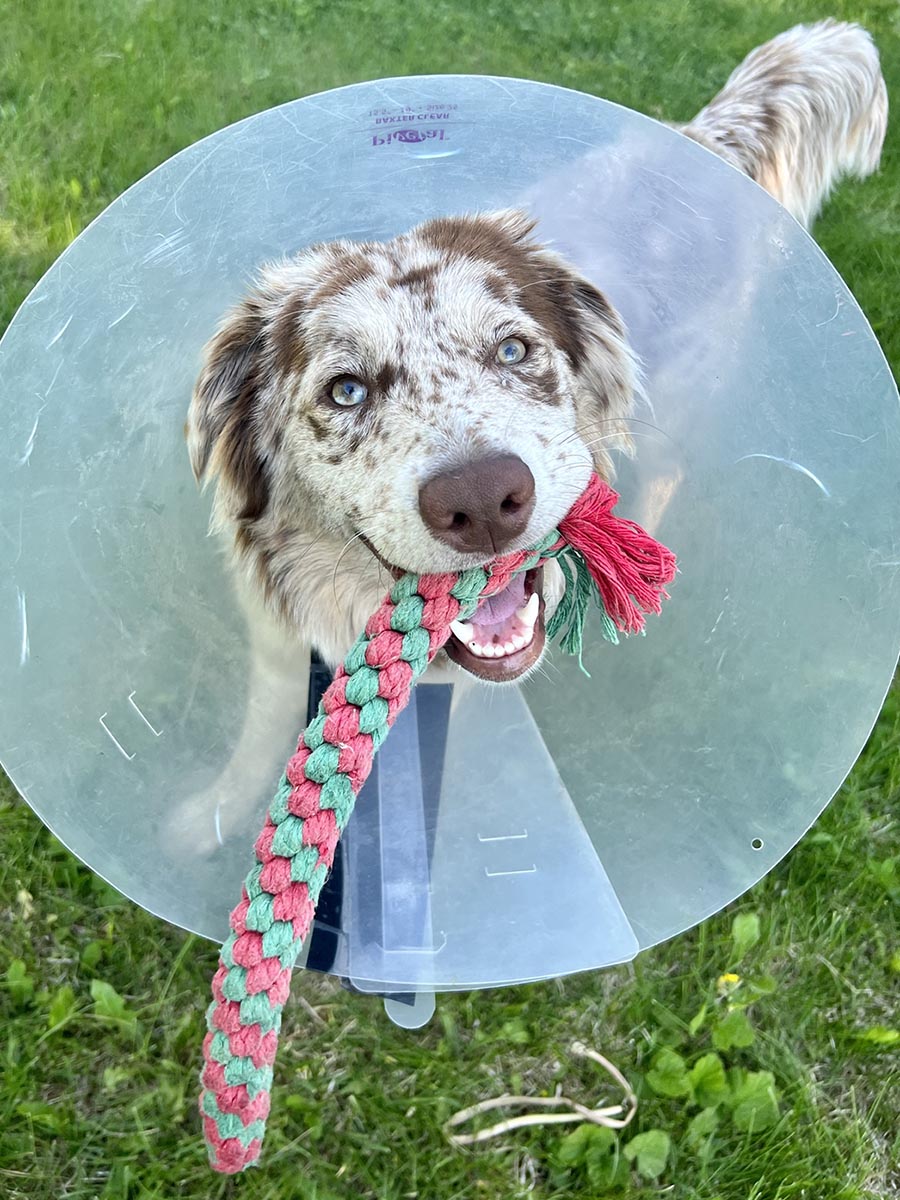The Importance of Ovary-Sparing Spays (OSS) and Vasectomies for Dogs
Dr. Bieber is one of just 3 vets in the state of Florida offering canine vasectomies and ovary-sparing spay procedures, which differ from traditional spays and neuters in one crucial way—hormone preservation.
Spaying and neutering dogs and cats is standard practice, recommended by vets all over the country. We have been taught that traditional spay and neuter procedures, which involve total removal of the sex organs and hormones, are necessary for the health of our pets.
However, recent research has found that dogs lacking natural hormones due to being spayed/neutered the traditional way may be more at risk for serious health issues such as hip dysplasia, bladder infections, hypothyroidism, bone cancer, and mast cell tumors.
Fortunately, there are safe, effective alternatives to traditional spays and neuters. Ovary-sparing spays and vasectomies, both also known as “hormone-sparing” procedures, allow for the safe sterilization of male and female dogs without causing potentially harmful hormone loss. These surgeries offer a best-of-both-worlds scenario; a pet can be sterilized to prevent impregnation/pregnancy, but still keep their natural hormones and avoid a negative impact on their health and lifespan.


What is an Ovary-Sparing Spay (OSS)?
OSS surgery is the best way to preserve your female dog’s hormones. It involves removing the uterus and cervix, but leaving the ovaries untouched. OSS prevents your dog from bleeding during their heat cycle and removes their risk for pyometra, a severe bacterial infection of the uterus.
Unlike traditional spay surgery, OSS poses fewer and less severe health risks. Allowing your pet to keep their ovaries should not increase their risk for ovarian cancer, which is already quite rare. Furthermore, mammary gland tumors are no more prevalent in OSS patients compared to traditional spay patients.
It is important to note that female dogs that undergo this procedure might still be attractive to males during their heat cycle, so it might be necessary to keep your pet indoors as much as possible while her heat cycle runs its course.
What is a Vasectomy?
A vasectomy is a procedure we perform on male dogs that involves cutting or clamping the tubes (called vas deferens) that carry sperm to the testes and urethra. This keeps the sperm from being able to travel. The vasectomy surgery can be done quickly while your pet is anesthetized, and it requires minimal downtime afterward. Like females, male dogs will still have their hormones and will therefore try to act on their natural urges. If there are any in-heat females in the vicinity, make sure your dog is kept fenced in or inside so they don’t try to roam.
My Dog Was Spayed/Neutered Traditionally—Are They at Risk?
Traditional spay and neuter surgeries have their risks, but there is no guarantee the procedure will be harmful to your pet. Many dogs recover just fine from their surgeries and go on to live long, happy lives. However, it is important to keep an eye out for abnormal physical changes in your pet and bring them in regularly for checkups. If we do find any issues, we can help you take steps to treat them.
At Sheridan West Animal Clinic, our goal is to do what’s best for your individual pet. Every animal is unique and deserves treatment options to accommodate them specifically. We are happy to offer ovary-sparing spays and vasectomies as a potentially safer and healthier spay/neuter option.
Call us today at 954-432-6230 to learn more and discuss the best option for your pet!

